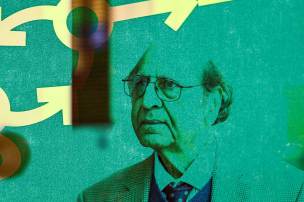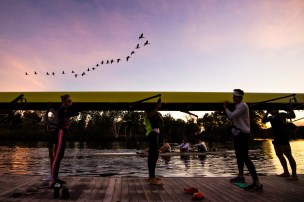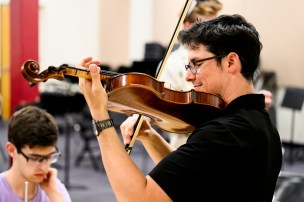Published on
Co-ops drive positive change in the neighborhoods—and create a pipeline for future nonprofit employees
Since 2021, Northeastern has funded Co-ops In Service to our Neighbors, which provides a paid, full-time co-op to six nonprofit partners. Meghan Reardon says working in Mission Hill has transformed her career goals.
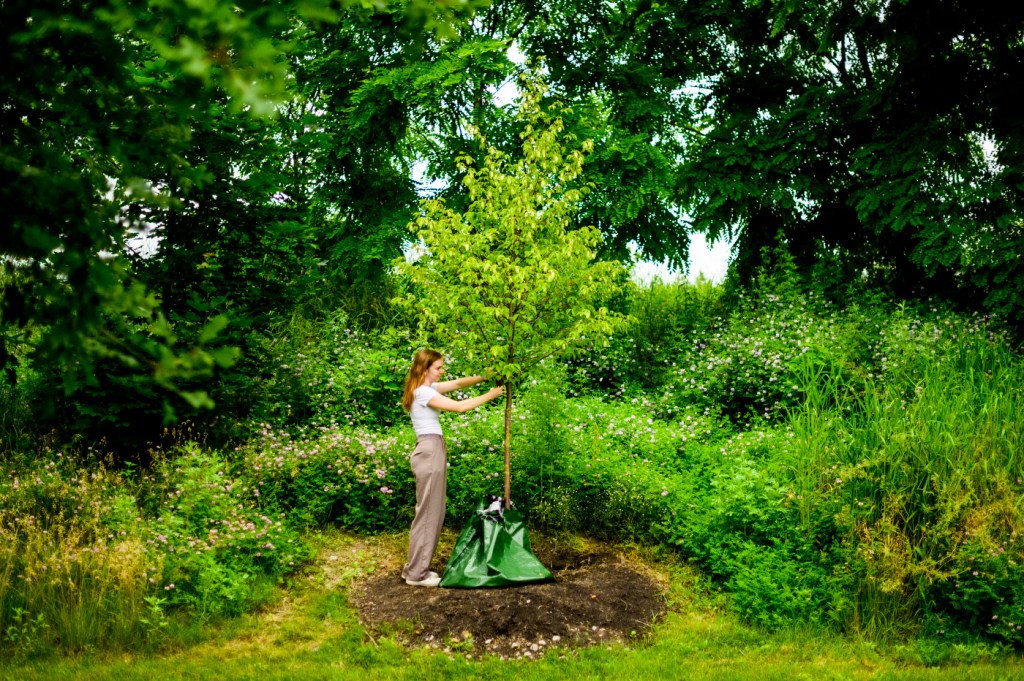
Like so many, Meghan Reardon came to Northeastern to explore and determine her future.
“My parents always say to do what you love,” she says on a recent morning stroll around the gorgeous hilltop park that has been a site of her co-op for the past six months. “My mom especially—being an entrepreneur and having her own jewelry business—has made me realize that I want to do something that I’m passionate about. Because she really loves what she does.”
Reardon cast a wide net for potential careers while studying criminal justice and psychology with a minor in environmental studies. “Part of the reason I’m doing combined majors is because I just couldn’t decide,” she says.

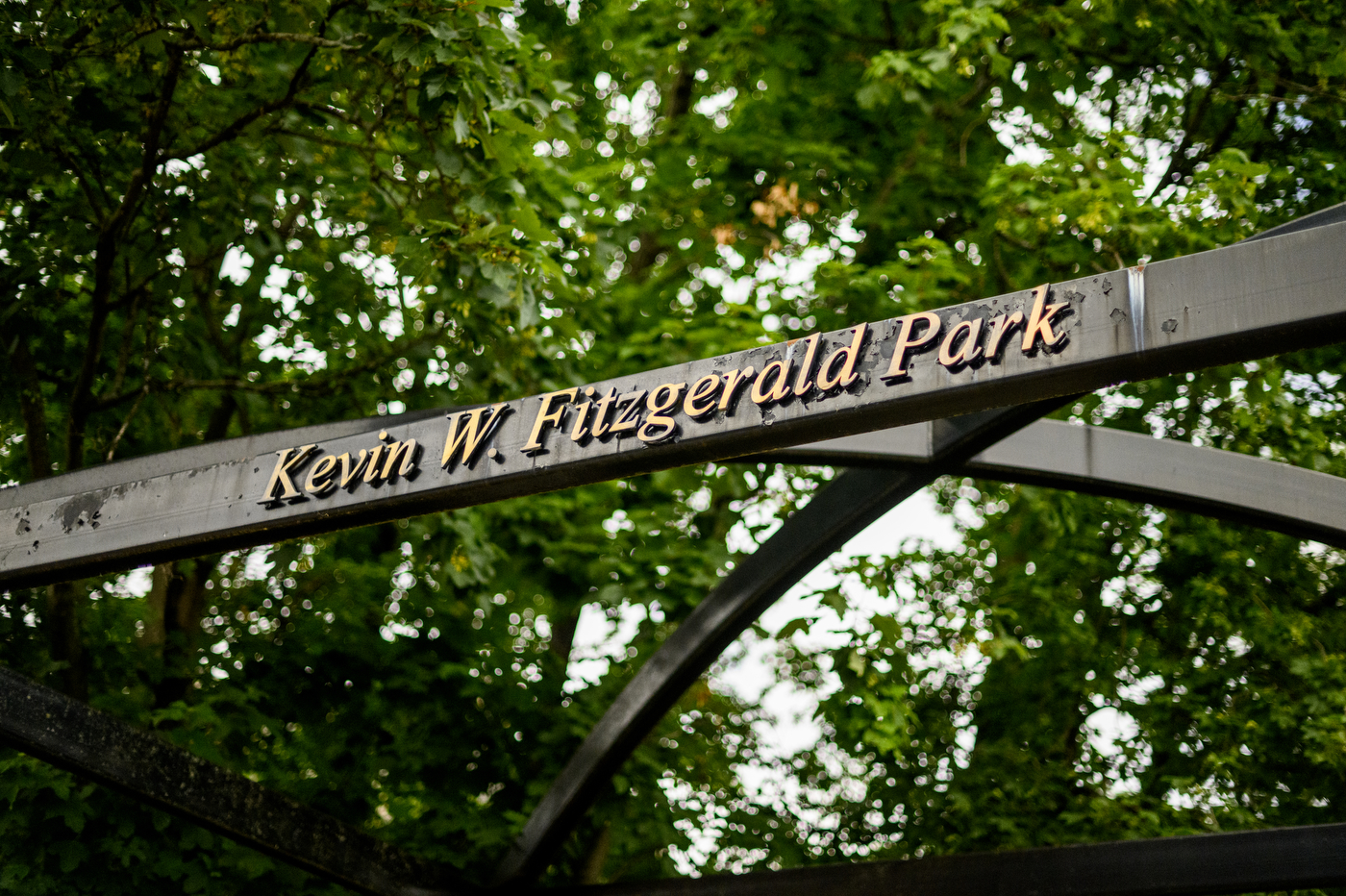


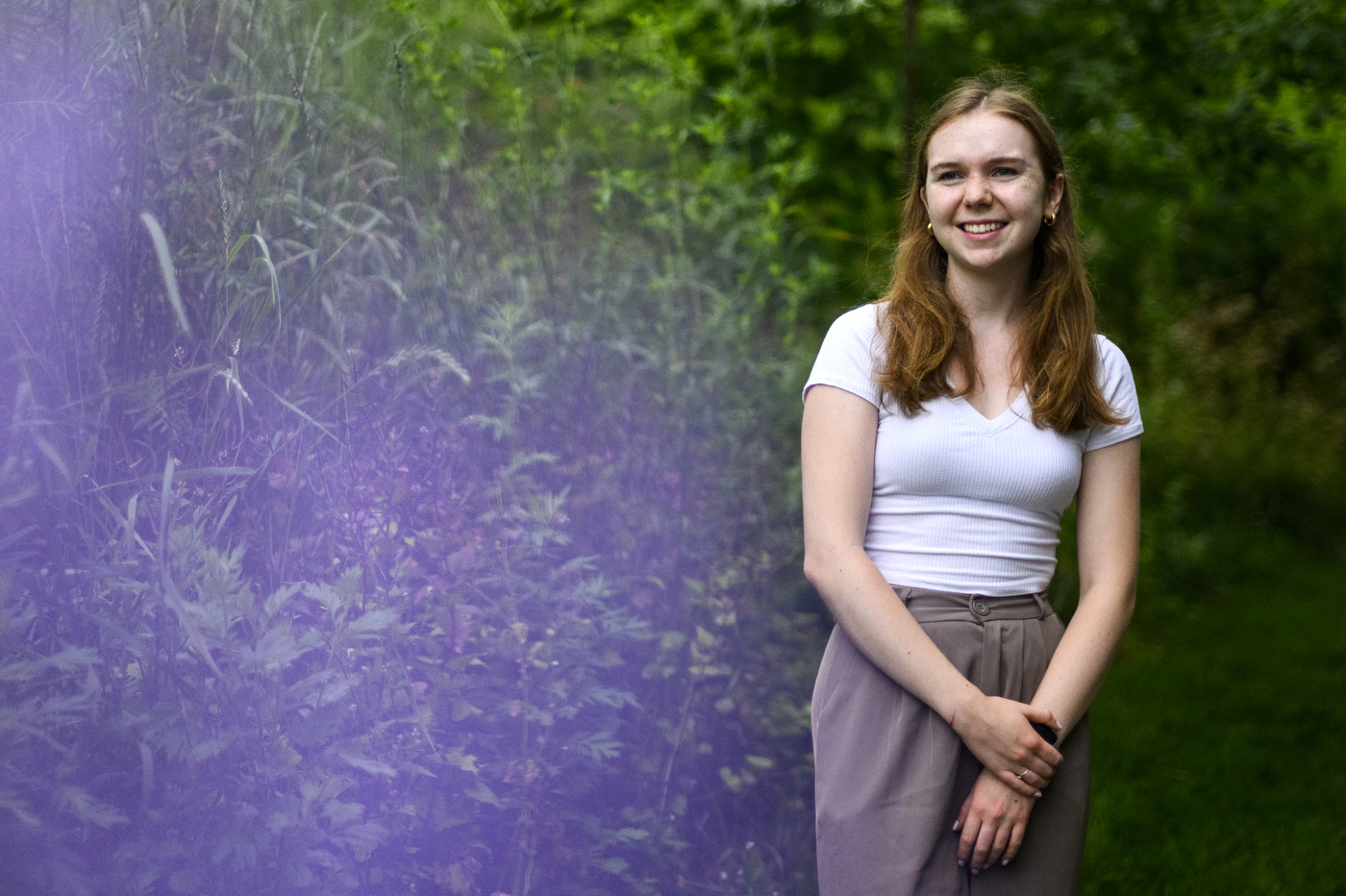
She was searching for clues in pursuit of her mystery last year when she came across a listing for the co-op—a half-year job with Mission Hill Neighborhood Housing Services, a 20-minute walk from Northeastern’s Boston campus. The nonprofit is headed by its executive director Patricia Flaherty, a community legend who drove efforts to transform a quarry—a massive hole in the ground—into Kevin W. Fitzgerald Park, named after a beloved Northeastern graduate and Massachusetts state representative who died of cancer in 2003.
And then at the foot of the ascendant 5.5-acre park is an array of businesses—grocery and drug stores, restaurants, and the office park where Flaherty maintains her nonprofit’s humble headquarters—that she also helped grow, in line with her organization’s dual mission to support the community while also expanding business opportunities.
So did Meghan Reardon become a community engagement coordinator at Mission Hill.
It turned out to be one of those jobs that requests a bit of courage. Reardon was a stranger to the neighborhood until the first day she showed up for work. She introduced herself to scores of new people, listened to their concerns and did what she could to fulfill their needs. She was handed assignments and responsibilities that she didn’t know the first thing about with the understanding that she was on her own to see them through.
And she wasn’t the only one—there were another five Northeastern students like her serving co-ops in other underserved neighborhoods of Boston. They too were taking on challenges that had to be met. Because people in need were depending on them.

Not your typical job
“Northeastern used to have six to eight co-ops working in Boston City Hall,” says John Tobin, a former member of the Boston City Council who serves as vice president of city and community engagement at Northeastern. “Their job was to answer the phones. And what they found out was that people aren’t calling City Hall to see how your day is going. They’re calling because there’s a blizzard going on or a blackout or a dead coyote on your front lawn or a broken street light.
“So the co-ops would answer those calls for six months and then at the end the mayor would order pizza and he would come down to the floor where the co-ops were and they would sit with the mayor. It was really great.”
The City Hall co-op program went dormant during the COVID-19 pandemic, naturally. And then, as things were getting back to normal, a better idea was raised by David Isberg, assistant vice president of city and community engagement. Why not offer co-ops to local community organizations?
“It was a great idea,” Tobin says. “We redirect these dollars to give these small nonprofits an extra set of hands. A Northeastern set of hands.”
Since 2021 Northeastern has funded the year-round program, Co-ops In Service to our Neighbors (CSN), which provides a paid, full-time co-op to each of six nonprofit partners. As their six-month term was concluding at the end of June (with a new slate of student workers in line to replace them), the half-dozen co-ops met recently with Northeastern administrators to review the work they’ve done since January. It was an impressive show:
- Lorenzo Bartoloni, a second-year human services and psychology student, worked with Fenway CDC. His responsibilities included policy advocacy, lobbying, resident engagement and finance management for the organization that develops affordable housing in the Fenway neighborhood near Northeastern.
- Fanta Sidibey, a second-year international business student, helped Madison Park CDC in a variety of ways including workforce development, tutoring, mentorship and youth development while increasing the organization’s social media footprint.
- Delaney Murray, who plans to graduate with degrees in journalism and political science in December, handled newsletters, press releases, articles, online engagement, liaison and community outreach while helping manage a large comedy fundraiser on behalf of Roxbury Main Streets. Murray raised more than $50,000 for the organization.
- Gianluca Hernandez, a third-year business administration student, served as a program intern at The Possible Zone, which helps young people develop personally, academically and professionally through experiential learning centered around entrepreneurship and STEAM (science, technology, engineering, art and math).
- Lisha Omoroghomwan, who will be graduating this year with degrees in brand management and marketing analytics, worked in marketing while supporting young people at Innovation Studio, which makes innovation, entrepreneurship and business ownership attainable through an empowering and inclusive network of community spaces and individualized pathways.
Northeastern paid the co-ops to invest in communities. Along the way, the co-ops were making investments in themselves, as their colleague Meghan Reardon learned at Mission Hill.
Fulfillment and self-confidence
Mission Hill Neighborhood Housing Services is managed by a full-time staff of two people—Flaherty and senior project coordinator Ricardo Sanchez. Joining them on a part-time basis is another former Northeastern co-op, Emily James, who was invaluable in supporting Reardon.
Before her January arrival, Reardon had surmised that her new colleagues worked long hours to deal with an endless list of demands. She also reasoned that the stress of their high ambitions was more than offset by the rewards of helping people and strengthening the community, both socially and economically.
And so it has been for Reardon, who says she has benefited from payments of fulfillment and self-confidence that have transcended her salary.
The long list of her work assignments was gathered under the heading of “Things I’ve Never Done Before.” She planned a variety of events—for Arbor Day, for One Boston Day commemorating the 10th anniversary of the Boston Marathon bombings, for community cleanings of the park as well as for city streets, and for the authority’s annual meeting involving its 24-person board and Boston Mayor Michelle Wu.
“Our annual meeting [in June] was definitely the biggest event that I worked on,” Reardon says. “One hundred seventy people came—it was a big public event—which means you have to do a lot of city permitting. And that’s something that I had no prior experience with. We needed a one-time entertainment license for the band that was playing. We needed food permits. I did not know how to do that.”
She applied for and secured $8,000 in grants (grant writing being another learn-as-you-go task) to fund summer programs that she went on to plan. She worked with volunteers—including Stephen Schneider, Northeastern’s chief arborist—to plant new trees and shrubs with identification tags in Fitzgerald Park’s pursuit of arboretum status as part of a larger drive to encourage sustainability.
“There’s the educational aspect of it,” Reardon says. “A requirement of being an arboretum is that you have to have access to plants in a way for the public to learn about them. The whole point of having those tags is so that people who come to the park every day can see the species’ name. Going through the park becomes sort of an interactive learning process.”
My parents always say to do what you love. My mom especially—being an entrepreneur and having her own jewelry business—has made me realize that I want to do something that I’m passionate about.
Meghan Reardon, a Northeastern student and a community engagement coordinator at Mission Hill
She created and managed postings on social media in addition to more traditional forms of outreach, including flyers and knocking on doors. For Valentine’s Day she hand-delivered gift cards to seniors in the neighborhood. Reardon says the warmth of the responses touched her as the initial greetings gave way to extended conversations and ongoing relationships.
“The amount of work that Meghan achieved is quite remarkable,” Flaherty told the Northeastern group after Reardon had made her presentation. “I don’t think she pats herself on the back enough because she had to work really independently. We had lots of crises in our core work going on during the time that Meghan was here. So often she just had to do it, and she did an amazing job.”
In many cases Reardon acknowledged that she embarked upon a project with uncertainty that she could pull it off.
“That is true,” she says. “It was always right at the start when one event passes and then there’s another big one coming up. I take a deep breath and I’m like, we’re doing it all over again. And it’s something completely different.
“But in the end it always works out and I just have to have faith in that and faith in myself—in what Patricia and Ricardo have taught me. I know that they’re going to be there to help me along the way and that I can do it based on everything that I’ve learned prior to this. So definitely I’ve learned a lot.”
So much so that Reardon, like several of her fellow CSN co-ops, finds herself wondering if she may make her career in nonprofit work. In the meantime, she’ll be returning to Mission Hall this month to help with work on a new affordable housing project for the neighborhood.
“One of the things that has come out of this whole program is that Northeastern is building a pipeline for nonprofit future employees,” Flaherty said. “I joke that someday I might get to retire. But Meghan might actually be the person who could take over my job—and not very much longer in the future. She’s ready.”
Flaherty wanted the co-ops and their administrators to understand the difficulties and rewards of investing in communities.
“Most days are difficult doing this work,” she said. “The highlight of our days, and I think Ricardo would agree, is coming in and getting to work with the co-ops. It makes our work easier and also makes our work brighter. So thank you Northeastern, and thank you Meghan, and we never want to let you go.”
Ian Thomsen is a Northeastern Global News reporter. Email him at i.thomsen@northeastern.edu. Follow him on Twitter @IanatNU.


